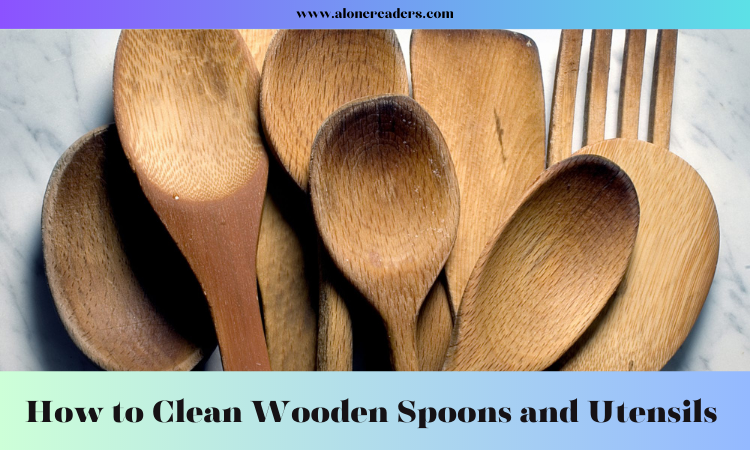
Some of the most durable cooking tools on the market available are wooden spoons and utensils. Wood naturally resists bacteria and mold because of its antibacterial capabilities. Wood is a strong, all-natural material, but it can also be delicate to chemical substances, dampness, and extremely dry heat. Each piece must also be hand-washed because wood shouldn't be exposed to water for extended periods of time. Cleaning becomes difficult as a result of this.
Although cleaning wooden spoons and utensils may seem simple, there are some quick, easy ways to extend the life of these enduring kitchen items. Before cleaning wooden spoons, avoid these mistakes:
Equipment:
Materials:
To extend their lifespan and efficacy in the kitchen, follow these simple step-by-step instructions to wash, sanitize, and dry wooden spoons and utensils without damaging the natural material:
After each usage, immediately wash the utensil in the sink with warm water to get rid of any food leftovers. Wooden utensils easily absorb odors and stains, so don’t skip this rinse. Avoid extremely hot water; instead, opt for a gentle rinse under warm water.
Next, wash the wooden spoon or utensil by hand in warm water and mild dish soap. Dish soap should be lightly rubbed onto a cloth, sponge, or non-abrasive brush. Scrub the utensils well in a circular motion, paying special attention to the handle and any cracks.
Use warm water to completely wash away any soap or food stains. Make sure you don't miss any suds.
Wooden cooking equipment should be fully air-dried before being stored to avoid mustiness or cracking. Use a clean cloth or paper towel to wipe and pat them dry. Instead of laying flat in the drying dish rack, wooden utensils should be propped up to allow for better airflow. Keep kitchen utensils stored in a cool, well-ventilated area once everything is dry.
There are numerous methods to give wooden kitchen equipment a deeper clean if stains and odors are difficult to remove after a thorough standard clean:
Baking soda: Mix 1 tablespoon of baking soda with 1 tablespoon of water to get rid of lingering odors and food stains. After cleaning the wooden spoon or another kitchen utensil with the solution, thoroughly wash and dry it.
Distilled white vinegar: Wash wooden spoons and utensils in a 1:1 vinegar-to-water ratio to get rid of tough buildup. Before storing, properly clean and dry the food.
Hydrogen peroxide: Despite the fact that wooden utensils are antibacterial, occasionally your things may require a proper cleaning. Clean wooden spoons with hydrogen peroxide. Give them a 15-minute soak in hydrogen peroxide, followed by a thorough water rinse and air-drying.
Oil: Applying oil to wooden spoons and utensils is an excellent way to prevent drying out or cracking. Try beeswax, food-grade mineral oil, or conditioning oil. Apply some oil or wax on the utensil with a cloth after it has been cleaned and dried. Allow the oil to settle for ten minutes before wiping off any extra.
Although durable and long-lasting, wooden utensils may need to be replaced long before they ever appear to. You should replace your hardwood cooking utensils every five years or so. Replace them with new ones right soon if they are cracked, distorted, or look to be tainted with mold or other growth.
Final Word
Wooden spoons and utensils always need the proper clean treatment. Since these products are actually made of wood, they require a different amount of care than the majority of kitchen tools. Despite the fact that wooden kitchenware is made to endure a very long time, if you don't take good care of it, it won't.